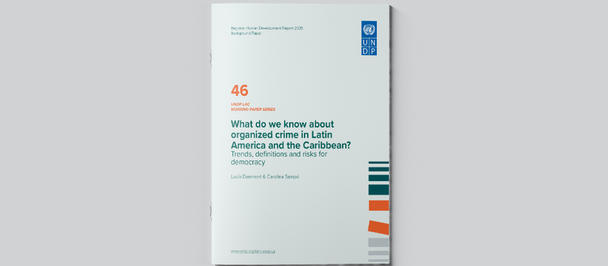In whom do we trust? Less in institutions and more in communities in LAC
January 23, 2024
Trust between individuals and governments - namely institutional trust - is an essential element for the functioning of societies. The payment of taxes, electoral process, compliance with norms and laws, and the use of basic public services all depend on the extent to which individuals trust the institutions in charge. When an institution is consistent and predictable in its delivery services and reliable in terms of outcomes, it builds a trusting relationship with citizens (World Bank 2017). Similarly, when policy and normative decisions are made through processes that are perceived as fair and just, trust is built.
This #GraphForThought looks at trends in trust in the region in the last decades and finds that for a considerable period, LAC has been grappling with a significant and progressively declining trust in governments. Data from Latinobarometro, starting in 2009, and until 2018, shows that trust in institutions declined significantly, reaching levels close to 20%. That is, only 1 in 5 people expressed trust in their governments.
Interestingly, there was a significant improvement in trust in governments from 2018 to 2020. While this increase warrants careful examination, we propose two possibilities: a) during this period, recent elections saw the victory of outsiders from traditional party systems, infusing a sense of hope in political institutions. Examining the 2020 data, the six countries with the highest levels of government trust in the region were El Salvador, Uruguay, the Dominican Republic, Mexico, Brazil, and Colombia. In all these cases, recent elections featured parties of new formation, except for Uruguay, where the winning party is well-established. This leads us to the second possibility: the 'rally around the flag' effect and the measures many governments took to mitigate the impacts of the pandemic. Uruguay, for instance, received international recognition for its exemplary management of the pandemic.
When looking at whether individuals “trust in most people” (also known as social or generalized trust), we observe a similar pattern. Historical data indicates consistently low levels of social trust in LAC compared to other regions. However, from 2009 to 2020, a discernible downward trajectory became evident. Social trust implies a generalized form of trust extended to any member of society and not just close ties; it enables the creation of networks and coordination facilitating the solution of collective action problems (therefore it correlates with institutional trust). This is why Fukuyama argues that cooperation, motivated by social trust, is central in explaining the differences in economic performance across countries. Diminishing levels of trust are happening simultaneously to a decline in satisfaction with democracy. In 2013, 8 out of 10 Latin Americans expressed the view that, despite its potential problems, democracy is the best system of government. However, this ratio fell to only 6 out of 10 in 2020 (its lowest level) (Latinobaromentro 2008- 2023)
Interestingly, while this was happening, trust in communities has remained relatively stable. There is even a moment when, while social and institutional trust declined, community trust experienced a slight improvement (2009-2014). The geographic distribution of the population, particularly in urban areas, often results in the formation of clusters where people share numerous identity features, giving rise to what is commonly known as 'communities.' Individuals residing in communities with strong trust dynamics generally experience more favorable developmental outcomes, especially among low-income individuals. A robust community enables individuals to participate in future oriented activities such as saving or getting a degree (Jachimowicz et al. 2017).
While community trust is important and can play a positive role in terms of providing safety nets, an excessive reliance on close relationships can pose challenges when coupled with low social trust and low trust in institutions. Distrust in 'most people' tends to foster the formation of trust clusters within homogeneous groups and leads to alienation across different groups. However, it is the lack of trust in institutions that can fuel the effective voicing of antagonism. In other words, if individuals lack confidence that rules and authority will impartially mediate conflicts, relations with other groups can go from just alienation to one where political or even violent confrontations may escalate. This growing distance between groups, not mediated by a credible authority, is likely one factor driving the increasing trend in polarization that we explored in a previous G4T “With me, or against me: the intensification of political polarization in Latin America and the Caribbean”.
Examining the various expressions of trust in the region reveals a narrative of recent shifts in social relations. We observe a significant and recent decline in trust in institutions, spanning from 2009 to 2018. This helps us understand some challenges to effective governance that the region has faced and a decline in the commitment to democratic values. The decline in institutional trust in LAC is also paralleled by a diminishing trust in most people. When these two elements are combined with the concurrently stable or even growing trust in close-knit communities, they contribute to understanding the widening social distance and increasing antagonism between different social groups. For LAC societies to thrive, we need to think about rebuilding trust in institutions by fulfilling commitments and delivering positive outcomes. Policymakers should carefully evaluate whether their policies contribute to reinforcing societal divisions or if they work towards building 'bridges' among different social segments, considering both socioeconomic and geographic dimensions.

 Locations
Locations


